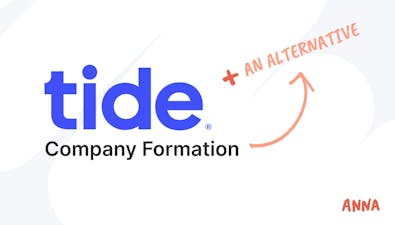
Why SMEs should consider EMI share schemes

It’s estimated that just 14,000 small to medium businesses have EMI schemes (Enterprise Management Incentives) in place right now. With our partner Vestd, we go into detail about why setting up a share scheme with a focus on EMI could be the transformative strategy that propels your business towards unparalleled success.
This post was written by our partners at Vestd


Every strategic decision taken holds the potential to shape the trajectory of success for startups, no matter their industry, niche, or pace of progress. Of course, any business will be affected by the decisions it makes, but it’s often true that the smaller the enterprise, the smaller the margin for error.
From navigating the intricacies of funding to surmounting the ever-present challenges of talent acquisition and retention, SMEs are in a perpetual state of adaptation and growth.
Amidst this whirlwind, any tool or product that could present a competitive edge should be considered – but what of the one powerful tool that most overlook?
We’re talking about share schemes, particularly Enterprise Management Incentives (EMI). With the myriad benefits they offer, it's surprising – and a little disheartening – that more SMEs aren’t taking advantage of this invaluable resource.
It’s estimated that just 14,000 small to medium businesses have EMI schemes in place right now.
With more than 5.51 million small businesses and 36,900 medium businesses in the UK in total, millions of eligible firms are missing out on the many benefits that EMI schemes could bring to their business and employees.
Let's delve deeper into why setting up a share scheme with a focus on EMI could be the transformative strategy that propels your SME towards unparalleled success.
What makes share schemes so attractive?
Share schemes are the secret sauce for many successful SMEs. They are a mark of difference and can be the difference between success and failure when it comes to attracting and retaining the very best talent.
With loyalty a prerequisite for staff retention, share schemes can give valued team members a renewed sense of ownership and belonging, as well as making it more difficult to be tempted away by competitors.
Beyond the conventional perks of employment, such as a regular salary and any additional benefits including a company car or private healthcare, share schemes instil a profound sense of purpose. By aligning the interests of the employee with the long-term vision of the company, they can also unlock additional productivity, collaboration and innovation.
Widespread share scheme adoption has broader implications, too. If 250,000 more businesses embraced share schemes, an additional £2.4 billion could be injected into the UK economy. This isn't merely conjecture; it represents a tangible opportunity to stimulate investment, drive productivity, and foster a culture of equity ownership.
Recognising this potential, the government has actively encouraged SMEs to embrace share schemes as a means of fuelling economic growth and innovation.
All right, long live share schemes. But why EMI specifically?
For SMEs with fewer than 250 employees or £30 in assets, and particularly for startups, EMIs offer a unique blend of flexibility, tax efficiency, and scalability. Not all share schemes are suitable for all organisations. That’s because each enterprise has its own strengths, weaknesses, and needs.
EMIs are tailored specifically for smaller, high-growth companies, with a framework that aligns with the dynamic nature of startup life.
With tax advantages such as corporation tax relief, EMIs offer SMEs a cost-effective solution that maximises the value of equity incentives while minimising administrative burdens. In short, they’re effective and agile.
From the employer's perspective, the advantages of EMI schemes are multifaceted. Firstly, there's the allure of corporation tax relief, which offers a significant deduction based on the disparity between market value and employee purchase price.
Additionally, the inclusion of leaver clauses ensures clarity and fairness in the event of employee departures, safeguarding the integrity of the scheme and preserving its long-term viability. Basically, it offers protection from a scenario where an employee buys shares and promptly leaves the company.
As for employees, EMI schemes give them more than just a financial stake in the company's success. Through mechanisms such as Business Asset Disposal Relief (BADR), employees stand to benefit from a reduced Capital Gains Tax rate, unlocking financial security and incentivising long-term commitment.
Too long, didn’t read. A summary, please?
In short, EMI schemes represent a win-win for both employers and employees alike. By aligning interests, driving investment, and unlocking tax benefits, EMI schemes pave the way for SMEs to thrive in an increasingly competitive landscape. It's time for more SMEs to recognise the transformative potential of share schemes, with EMI leading the charge towards a brighter, more prosperous future.
Open a business account in minutes






